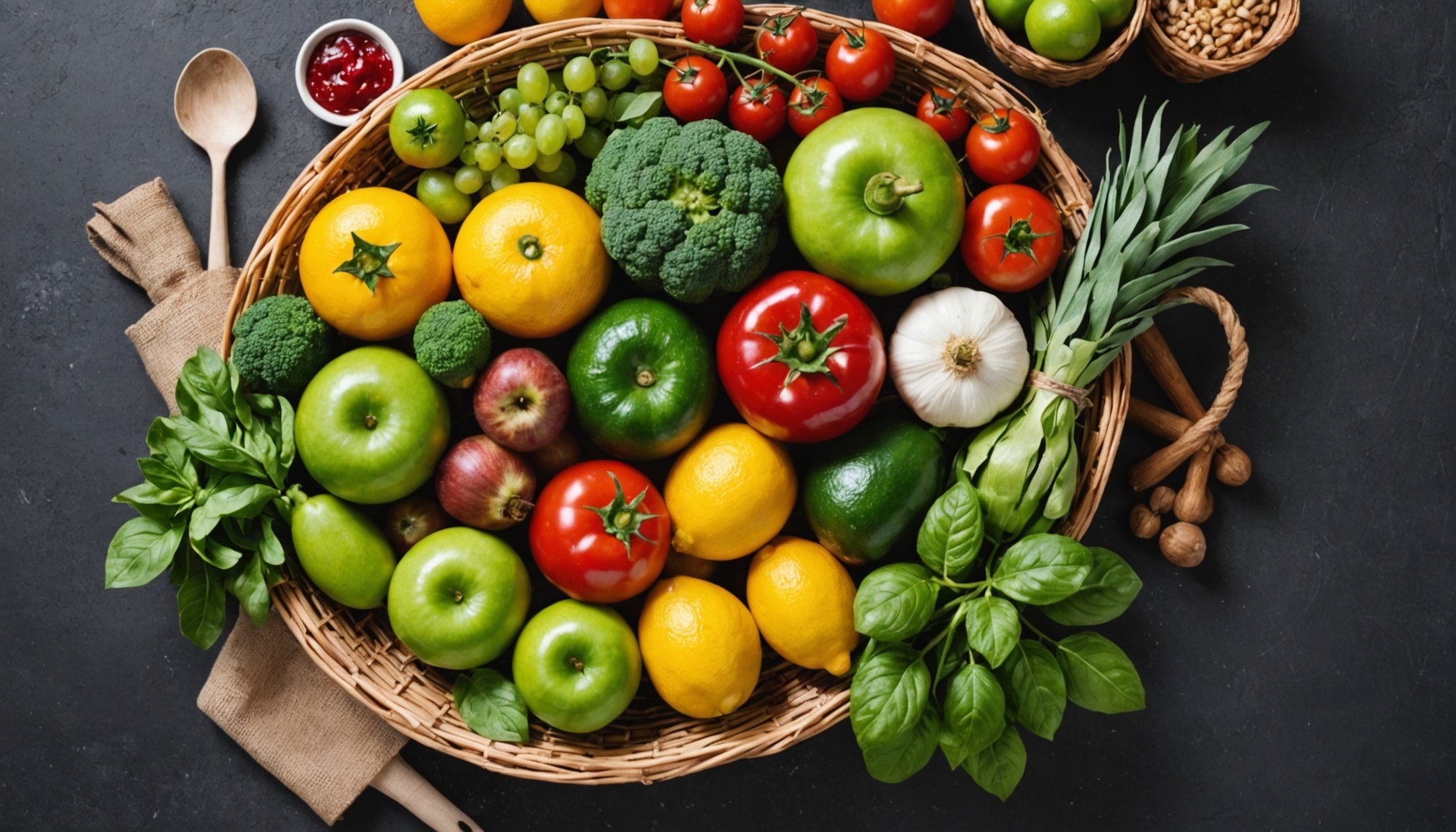Understanding Sustainable Growth in E-commerce
In recent years, sustainable growth strategies have become crucial in the UK organic market, particularly for those involved in e-commerce. This approach is vital as it aligns with consumer demands for environmentally responsible choices, fostering a positive brand image. In the UK organic food sector, the importance of sustainability is underscored by the increasing awareness and preference for organic products, driven by health and environmental concerns.
Recent e-commerce trends indicate a significant shift in how consumers access organic food brands. Online platforms provide greater convenience and accessibility, which can be harnessed to promote sustainable practices. Brands are encouraged to adopt strategies that mitigate environmental impact, such as reducing packaging waste and prioritizing eco-friendly delivery options.
Have you seen this : Ultimate guide to developing a successful omnichannel marketing strategy for uk fashion brands
Integrating sustainable practices in e-commerce offers numerous benefits. Beyond meeting ethical consumer demands, it can lead to improved customer loyalty and potential cost savings in logistics and packaging. Moreover, these practices can elevate a brand’s standing within the competitive UK organic market, distinguishing them as a leader in sustainability. Ultimately, there is a growing need for e-commerce entities to engage in sustainable growth strategies, ensuring long-term viability and alignment with consumer values in the digital age.
Effective E-commerce Strategies for UK Organic Food Brands
In the competitive market of organic food brands, implementing effective e-commerce strategies is crucial. Digital marketing is paramount to success; thus, brands must focus on components like targeted ads and search engine optimisation. These tactics enhance visibility and ensure the right audience discovers your products.
Topic to read : Transforming customer service in the uk it sector: essential ai strategies for success
A fundamental strategy involves engaging consumers through storytelling and brand authenticity. Customers yearn for genuine brands with a compelling story. Sharing origins and transparent practices fosters consumer trust and loyalty. It’s not just about selling a product; it’s about demonstrating your values and commitment to quality.
Leveraging social media platforms is another powerful method for broader outreach. Platforms like Instagram, Facebook, and TikTok offer opportunities to showcase your products, engage with followers, and incentivize shares and purchases. Regular interaction and creative content keep your audience connected and invested in your brand.
Moreover, leveraging consumer engagement techniques such as feedback loops and interactive posts can significantly enhance your brand’s online presence. Polls, Q&A sessions, and live demonstrations not only engage but also provide valuable insights into consumer preferences. Effective e-commerce strategies for organic food brands mean cultivating a relationship that’s as organic as the products themselves.
Case Studies of Successful UK Organic Food Brands
Understanding successful brands in the organic food market helps in identifying what separates market leaders from the rest. Key success stories in the UK market are often attributed to strategic manoeuvres and unique innovations.
Take, for instance, well-known brands like Riverford Organics and Abel & Cole, which have excelled through remarkable brand analysis. These companies prioritised sustainability and transparency, becoming market leaders whom other brands emulate.
Lessons learned from these enterprises often highlight the importance of directly engaging with consumers. Their e-commerce models focus on efficient delivery systems, which cater to the needs of health-conscious and environmentally aware customers.
Moreover, innovations play a pivotal role. Incorporating technology like AI for personalisation in shopping experiences or adopting eco-friendly packaging redefine consumer expectations. These novel methods set the best brands apart.
Successfully penetrating the market involves analysing such market strategies to align brand goals with consumer demand. For a brand aspiring to enter or dominate the organic food market, understanding these elements and adapting them is crucial. Ultimately, market leaders continue to evolve by predicting trends, staying ahead of challenges, and maintaining strong connections with their consumers.
Practical Tips for Implementing Sustainable Practices
Making your business more sustainable is not only good for the planet, but it can also boost operational efficiency. Here are some practical steps to integrate eco-friendly practices into your e-commerce operations.
Start by evaluating your supply chain. Opt for green suppliers and ethical sourcing of materials to ensure you’re using resources sustainably. Transparently communicate these practices to your customers to build trust and loyalty.
Consider implementing sustainability tips such as reducing packaging waste by selecting biodegradable or reusable materials. This not only cuts down on environmental impact but can also reduce costs.
Invest in energy-efficient technologies within your operations. Improve your carbon footprint by using renewable energy sources when possible. This helps in maintaining a balance between efficiency and environmental responsibility.
Maximize supply chain efficiency by adopting smarter logistics planning. Utilize data analytics to forecast demand accurately and avoid overproduction. Collaborate with logistics partners who are committed to eco-friendly practices.
Finally, foster a company culture that values sustainability. Train employees to recognize and adopt environmentally-friendly solutions in their daily tasks. Adopting these practices not only advances your sustainability goals but positions your business as a responsible leader in the market.
Addressing Challenges and Opportunities in the Market
In the UK organic food sector, navigating the competitive landscape presents distinct challenges and opportunities. Market challenges often faced by brands in this sector include high competition and regulatory restrictions. These factors can hinder the ability to capture market share effectively. Brands must also contend with fluctuating consumer demand and fluctuating supply chains.
On the other hand, the sector is ripe with industry opportunities. There’s growing consumer interest in sustainable and healthy eating, which drives demand for organic products. This shift towards health-conscious consumption provides a unique opening for companies to differentiate themselves with innovative products.
To conquer the market hurdles, UK organic brands need strategic approaches. Building a robust online presence is crucial. E-commerce platforms have become indispensable tools for reaching a broader audience, given the increasing preference for online shopping.
Brands should also focus on transparency and sustainability. Highlighting ethical sourcing and environmentally friendly practices caters directly to consumer values, helping to set a brand apart in a crowded market.
Additionally, collaborating with established retailers for better shelf space and visibility can significantly enhance market reach. These strategies, tailored to the industry’s specific dynamics, can effectively mitigate challenges and leverage emerging opportunities.
Insights into Consumer Trends in Organic Food E-commerce
As the demand for organic food continues to grow, understanding consumer behavior is crucial for businesses in the e-commerce sector. Recent market research indicates a clear shift towards healthier and more sustainable buying choices. One of the driving forces behind this trend is eco-conscious consumers who prefer products that align with their environmentally friendly values.
These customers are often motivated by health concerns and a desire to support sustainable agriculture. With the increase in buying trends favouring organic food, e-commerce platforms have begun to adapt by offering a wider range of organic products. This shift suggests that the market is responding to the growing consumer behavior for transparency and authenticity in food sourcing.
Looking to the future, predictions for the organic food e-commerce market are optimistic. It is expected that as environmental awareness continues to rise, more consumers will gravitate towards organic options. Businesses that can successfully tap into these buying trends and cater to the eco-conscious market will likely experience significant growth and consumer loyalty. In conclusion, staying informed about consumer behavior and evolving market trends is essential for stakeholders in the organic food e-commerce industry.
Actionable Steps for E-commerce Implementation
Launching or enhancing an organic food e-commerce site requires a strategic approach. An implementation guide tailored to your business can help you navigate this process effectively.
Firstly, consider creating a checklist of essential actions:
- Set clear objectives for your site, defining the target audience and unique value proposition.
- Ensure a user-friendly interface with clear navigation and rapid load times.
- Establish secure payment methods and a smooth checkout process to foster consumer trust.
Best practices for SEO optimization are crucial for enhancing your online visibility. Use relevant keywords strategically throughout your product descriptions and meta tags. Develop original, engaging content like blogs or videos to draw organic traffic and increase your search engine ranking.
Furthermore, the importance of continuous improvement through data analysis can’t be overstressed. Utilize analytics tools to monitor customer behavior, preferences, and site performance. This data helps in both identifying areas that require improvement and confirming successful strategies.
Finally, embrace A/B testing to evaluate the effectiveness of different elements, such as page layouts or promotional offers. By combining these actionable strategies and best practices, you’ll set your e-commerce site on the path to success.











